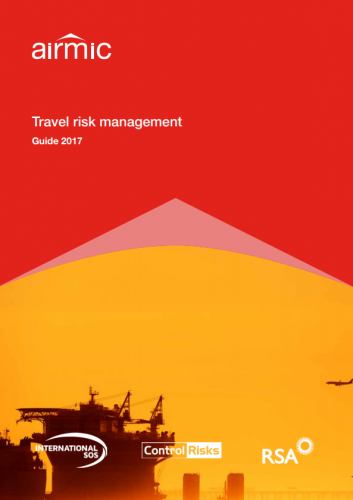Travel risk management
1 - Introduction
Almost all organisations, whether large, small, domestic or international require people to travel on a regular basis as part of their work.
Despite a growing reliance on travel, only 16% of Airmic members report that they have high confidence in their travel risk management framework. However, less than a fifth of Airmic members report that travel risk is a top concern for them (Airmic pre-conference survey 2016).
Globalisation, an increasing dependence on complex supply chains and reduced travel costs mean that business travel is a growing trend. PwC reports that business travel levels have grown by 25% over the last decade and is expected to increase by over 50% between 2010 and 2020 (Talent Mobility 2020, PwC, 2014). The definition of traveller has also expanded. The traditional ‘business traveller’ as a professional worker has been replaced with a wider definition of ‘mobile workers’ travelling on behalf of their companies. Airmic members additionally report that they send their people to a wider range of territories, including high- or extreme-risk regions.
To respond to this increased reliance on travel, organisations need flexible and evolving travel risk management strategies that go beyond purchasing travel insurance. These strategies should respond to the different risks present in different territories and the requirements of the different individuals travelling. They must be able to respond to the wide range of factors that can convert even a low-risk destination into a high risk destination, e.g. health, safety, security, political or social change, and natural disasters.
Airmic has worked alongside International SOS, Control Risks and RSA to prepare this comprehensive summary of how organisations should approach travel risk management. This guide outlines the legal duty of care that organisations have to the people they send on travel as part of their work and provides a travel risk toolkit which Airmic members can use to review and enhance their own pre-, during- and post-travel policies.
- Fill out an application Our membership manager will assess your eligibility against our criteria.
- Complete your profileIf you are eligible for membership you will be asked to answer a few questions about yourself.
- PaymentYou can make payment online using a card or request an invoice.

